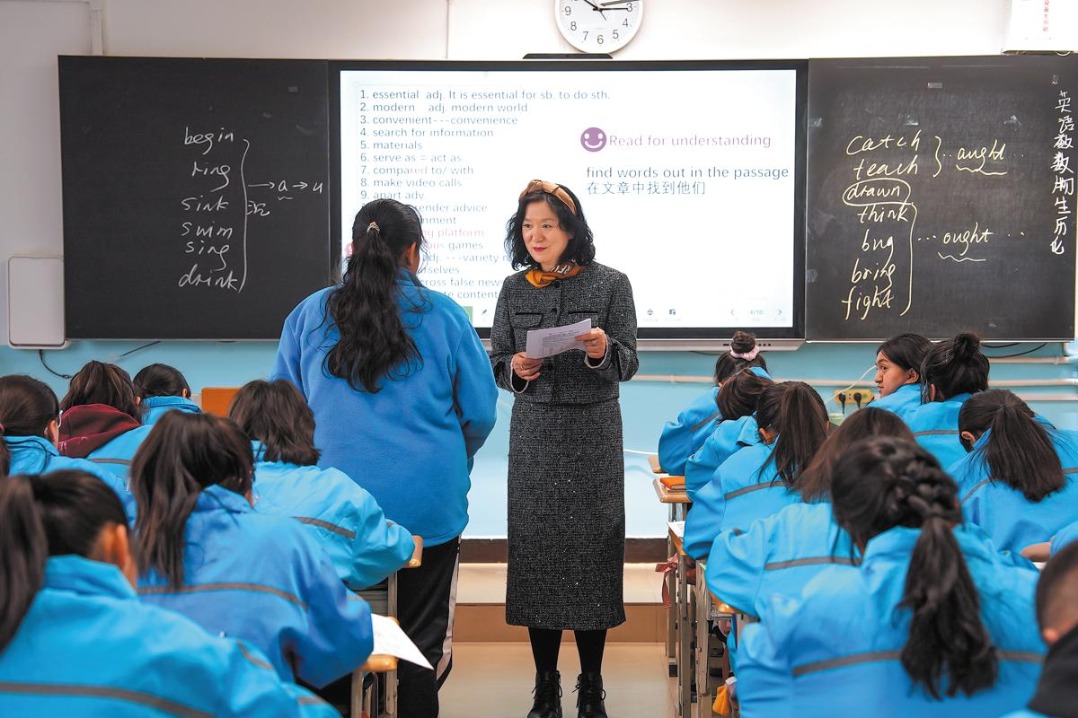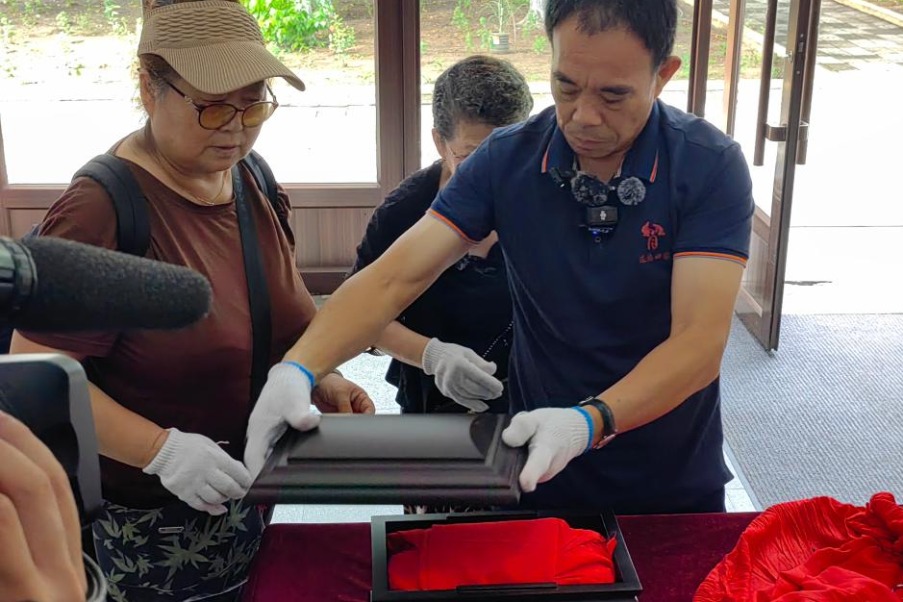Feature: AI enriches basic education in China

BEIJING -- "Confucius, does the phrase 'To learn and constantly review what one has learned, isn't that a delight?' mean that we should frequently review our lessons?"
In a fourth grade classroom of Xinyilu Primary School, Qinhuangdao, North China's Hebei province, a student posed this question to a virtual figure on the screen. The digital "Confucius," dressed in traditional attire, nodded gently and replied, "Indeed. By revisiting what one has learned, one can gain new insights."
With the integration of artificial intelligence (AI)-powered virtual teaching assistants, historical figures can now "come to life" in classrooms, offering students an immersive and interactive learning experience.
The deep integration of AI and education will bring about major changes in the education model and the way schools are organized, said Xue Lan, Dean of the Schwarzman College at Tsinghua University. "As a personalized learning hub, AI offers limitless possibilities."
Tianjin Huiwen Middle School in the northern municipality has gone through three stages of exploration in its AI education.
In 2017, the school organized a sci-tech club to engage a small group of students interested in AI, allowing them to try out for robotics and other related competitions. By 2022, the school had become determined to broaden the reach of its AI education programs.
The school specially created sci-tech innovation courses covering robots, drones and RoboMaster to expand the variety of AI education.
At present, AI has been integrated into the daily teaching of Huiwen Middle School, serving as assistant that helps teachers bring new experiences to traditional education.
The development path of Huiwen in AI education was similar with other schools in China. Educators widely acknowledge AI's transformative impact on classroom efficiency.
"As part of our school's digital transformation, every classroom is now equipped with smart interactive boards and AI-powered virtual assistants, enabling real-time human-machine interactions," said Principal Yao Hairong of Xinyilu Primary School. "This not only enhances teaching efficiency but also significantly boosts students' engagement in learning."
Many parents believe that AI-driven learning makes lessons more engaging and fosters student interest.
A mother of a fifth grade student, surnamed Li, said that AI has sparked her child's interest in making PowerPoint slides and generating diversified templates by AI.
"I hope she could be inspired by this and get to know some computer technologies," said Li.
Meanwhile, teachers and parents showed some concern about the use of AI in the study.
"AI-generated teaching materials still have their limitations," said Ni Lili, a teacher at Xinyilu Primary School. "Presentations, speeches, and supplementary materials produced by AI often lack personalization and do not fully reflect a teacher's unique style.
"Additionally, AI-generated images and multimedia content sometimes do not align precisely with the given descriptions, requiring manual adjustments," she said.
Parents also expressed concerns that excessive reliance on AI may weaken students' problem-solving abilities.
"When my child encounters a difficult question, their first instinct is to ask AI for the answer instead of thinking through the problem themselves," Li remarked.
Education experts emphasize that AI should serve as a tool to support student thinking rather than a substitute for independent reasoning.
"AI in education should focus on guided learning, helping students develop problem-solving skills rather than simply providing answers," they noted.
In February 2024, China selected 184 schools as pilot bases to explore philosophies, models and programs in AI education. The goal is to develop exemplary cases and experience that can be promoted on a larger scale.
In order to support the integration of AI into basic education, the Ministry of Education (MOE) issued a directive in late 2024, outlining key objectives for advancing AI in primary and secondary education.
The plan aims to establish a structured AI curriculum system, promote AI-driven teaching and assessment, and primarily realize the full coverage of AI education in primary and secondary schools by 2030, equipping students across China with AI literacy and practical skills.
- China leads Asia with 16 spots in list of top 100 global education cities
- China's first UNESCO Category 1 Center established in Shanghai
- Two South China cities to suspend school, production in response to approaching typhoon
- Dongying advances ecological protection at Yellow River estuary
- Xi extends greetings ahead of farmers' harvest festival
- Baihua Literature Award recognizes 45 works in Tianjin





































